Tag: creative non-fiction
Yellow
by trogers5 on January 27, 2022
Creative Non-Fiction

Marelle Hipolito ’22
So dull was the class today that I drew a house. It had a white picket fence. The grass was green and the flowers radiated life. It had five windows, four squares in between maroon brick walls, and one circle inviting a peak of sunlight into the second floor. My pen ink was black, so I could only imagine it, but the door was yellow, yellow, so bright and yellow.
So yellow was the door that all the neighbors talked about it. “Their door is so yellow! Do you know why? All of our houses’ doors are blue and dark brown; theirs does not match and it changes the whole neighborhood. Where do they come from? Why are they here? How are they okay with such a different door? Looking at it is like staring at the sun!”
So many were the neighborly questions that I started to question, too. Why is it bad that our door is as yellow as the sun? Their doors are as blue as the sky and as dark as the earth; together our neighborhood could be the world. How is it so different? Our door opens and closes, just like their doors. It’s in the middle of the house under a circle window and with two square windows on either side, just like their houses. The grass is green and has flowers, just like their lawns.
So dull the questions made me that I finished my drawing. I drew curtains over all five windows, with the circle taking back its invitation to the light. I shaded splinters on the white picket fence, and I curved the stems on the flowers to make them face down. I didn’t have much ink left, and since it was only black, I could only imagine it, but the door was blue and dark brown, just like the rest of the neighborhood.
You Have OCD and Not the One Where You Clean a Bunch of Stuff
by The Cowl Editor on October 21, 2021
Creative Non-Fiction

by Aidan Lerner ’22
“There’s poison in your glass.”
You want a glass of water. You go get a glass, right? You go to the cabinet and you select a glass. Then, you inspect it carefully. You are looking for poison. You may ask yourself why you are doing that. Well, because your thoughts have given you the idea that there just might be poison in the glass. You might as well give the glass a look!
You’re very thirsty. You just want a simple glass of water, but the first, second, third, and fourth glasses that you checked had unexplained bumps or suspicious spots of dust. You place them in the “maybe contains deadly toxin” pile. Eventually, you decide to risk it. You will drink from a glass that might contain a poison that will murder you. You drink. The rest of your day is spent wondering when you’ll get sick: when death will arrive. In your mind, you prepare for the last few hours of your life. Stress increases and your behavior gets more erratic as you wonder if death will hurt. Aren’t there any final words you would like to say? Final acts for you to do? All responsibilities go out the window. Fear paralyzes you.
You curse yourself for drinking from a glass. When the sun rises, and you’re still alive, you tell yourself that it is better to go thirsty than go through that again.
You have OCD, or obsessive compulsive disorder. An everyday torture machine that starts with just one ridiculous thought and spirals endlessly.
OCD is a tunnel. The simple thought that “maybe that glass has poison” is your entry point into the tunnel. You are in the dark, and the light is one step behind you. Why on earth would a random glass be poisoned? That is absurd. Just drink the damn thing and you will be outside the tunnel. But you can’t. You check the glass, and you’re in the tunnel. By the time you’ve checked once, twice, thrice, you can’t see light behind you. You can’t see light in front of you. All you know is fear, and every second brings you spiraling farther down the tunnel.
That is a fairly typical sequence of events, spelled out slowly and painfully. The name of the game is irrational fear. And checking. Always checking. Some of the other things you do are relatively harmless. Every time you walk by the carbon monoxide detector you check it five times. Look at it, look away, look at it, look away, etc. Other compulsions are a lot more rigorous. Once upon a time, getting into your bed took one or two hours. There was a drawn-out ritual; you had to check every lock, pray the right way, organize your bed the right way, and do it all without making a mistake and without thinking the wrong thing. If a thought popped into your head such as “boobies” or “fart,” you were starting everything over.
I think that identity is an underrated aspect of the struggle to be alive. On some level, this thing we do is a crazy rat race to be “seen.” We want to be understood, for at least one person to look us in the eyes and know our entire being. You? You’d like to look in the mirror and figure out who the hell is staring back. In your worst moments, you see a monster. You see a slave to the whims of a mental disorder. Everything you do, everything you believe, everything you feel is OCD. Your feelings are obsessions. Your actions are compulsions. You are so deep into the tunnel that there is no way out.
In my opinion, you are screwed. R.I.P. you. Nah, I’m kidding. Illness is a part of you, but it isn’t you. Everything your brain has put you through has not been for nothing.
It gets better. The tunnel has an end, and there is light beaming. I can see you.
…and I can see your room, and it is nasty. Why don’t you put that OCD to work and get obsessed with something helpful, like dusting?
Timeline
by The Cowl Editor on September 16, 2021
Creative Non-Fiction

by Kate Ward ’23
Halfway through my freshman year of college, we were sent home on an extended spring break because of an outbreak of COVID-19 cases. Not long before we were sent home, my friends had been complaining of some sickness yet tested negative for strep and the flu. The school soon started telling people that, if they were able to, they should go home to recover if they were sick. Suddenly, we were back in our childhood bedrooms scrolling through our emails as we awaited a lick of news regarding our return to campus.
I live on the end of Long Island in a little town named Amagansett, where in the middle of winter, the population dwindles to the locals. We have everything we need to get on, or so we thought. People from the city began fleeing to their summer homes and soon our little town was overrun and our grocery stores were emptied out. I remember my mom talking to our relatives, saying we need to eat through our freezers. I laughed at the time and thought to myself thank God I’m going back to school so I don’t have to deal with this. Then I lost half of my freshman year. Oh, how that hurts. I remember listening to my dad’s frustration about teaching virtually; being unable to show his face or see his students was crippling because simple facial expressions are crucial to any learning experience.
I remember Tiger King and Outer Banks hitting Netflix, filling our brains with tigers and fantastic summertime adventures that would surely come once we got through the winter and spring. I remember the daily news briefings I would see as I emerged from my new classroom. I remember the TV special Alone At Home Together, a weird space in time where all of these actors and musicians came together on NBC to sing and pass on words of hope. That’s when everything started to set in, I wasn’t going back to school, I was staying at home in my Fennell-sized bedroom, with no friends to accompany me.
In deep quarantine, there was a lot of bad, but as we slowly came out of our chrysalis and blinked in the sunlight of a new era, hope shone on the horizon. I was to return to school, albeit with some (many) precautions in place, but mostly I was just happy to be back in Friartown. Being away led me to appreciate the tiniest details from campus that I had missed: the squirrels in the trash bins, the smell of the mailroom, hearing people laugh and joke. Existing in deep quarantine was like someone had turned off the lights and put a pillow over my head; everything was muffled and dark- now, in 2021, the lights are back on and things aren’t so muffled.
Tested twice a week, online classes, masks always, limited visitors, sports games cancelled. A lot of bad, but so much to be immensely grateful for. A lot of bad, but also a lot of good that came out of this crazy timeline that isn’t yet finished. For example, via Zoom, businesses and companies can now extend their reach further, making connections all around the world. Teachers can now show their students that they don’t live at school and that they have pets and kids and a life. Students can see that their teachers are more like them than they may seem in the classroom.
Since I started my junior year, I’ve been reflecting on the timeline that has unfolded since March of my freshman year. If I could change it, of course I would, but in all honesty, the timeline of COVID has taught me to observe more, to appreciate, and to be grateful for all there is. I’m sure it sounds like a cliché, but I think if we all just stop and take a breath we’ll be better off for it.
Location, Location, Location
by The Cowl Editor on September 16, 2021
Creative Non-Fiction
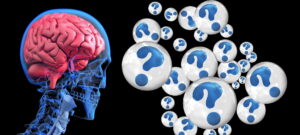
by Fiona Clarke ’23
I hesitate to claim outright that there are questions that are just bad (read: bizarre, intrusive, or just stupid) no matter the asker or of whom they are asked and no matter the time nor the place. Doctors, priests, and old people in general have a fair amount of elbow room in this area. So I’ll soften it just a bit. There are some questions that should not be asked of some people by some other people at some times in some places. An example of this would be: I am in the library (God forbid) and Bill Clinton comes up to me and asks: “How often do you floss?” Every single ingredient of this scenario clashes terribly with every other ingredient. Let’s break this down, shall we?
Person asking the question: Bill Clinton. That’s all. If he were to speak with the tongue of an angel, he would still be Bill Clinton. If he had the gift of prophecies and comprehended all mysteries and knowledge, and had faith to move all the mountains, he would still be Bill Clinton. Note: I am not suggesting that Bill Clinton is a lost cause. I submit only that he will forever remain inescapably Bill Clinton. Take that as you will. It’s a Bill wind blows nobody good…
Person being asked the question: Me. It’s not that I find the topic a sensitive one—no more sensitive than my gums, at any rate, or for that matter, my hips, for in response to the call of my inner dentist and dancer, I floss daily. I do prefer to keep personal details, and my teeth, where my mouth is, but outside the vinyl confines of the dental couch, this question would immediately make any reasonable person think that her choppers were about to be scavenged for a necklace.
Place in which the question is asked: I am never at my best in the library. I feel spiritually desolated, psychologically confused, physically cold and clammy, and emotionally plain old cranky. When I am in the library, even if I am not in the pit, I am in the pits.
There are also some questions that can and should be asked of some people by some other people, but that are equally important to be asked of some people by themselves—the unexamined life makes Jack a dull boy. These are the questions that you can’t answer without bottoming out on a mental speed bump. If you hit that speed bump, you’d better tuck that question under your arm when you get out of the 22 car and give it a real good going-over.
For my part, the question “Where are you from?” is one of these. It can most commonly be translated as “Where is your legal residence?” to which I can currently reply, with gritted teeth, “Massachusetts.” But the way I hear it, the question “Where are you from?” has an existential ring to it, and I’m not sure how to translate it. As of this writing, the closest I can get is somewhere between “Where is your home?” and “What’s your place of origin?” I’m reminded of a bit in Wallace Stegner’s novel Big Rock Candy Mountain. I don’t have the book on hand and so can’t quote it verbatim, but in this bit the guy Bruce contemplates something along these lines: If home’s not the place you hang your hat, and it’s not the place you were born, and it’s not the place your parents are from, nor where your family lives, then where on earth is it? And, if “Where are you from?” translates to “What’s your place of origin?” then how can one’s origin change? You can’t have more than one origin, so how can it be Mississippi one year and Michigan the next?
Like Bruce, I have little connection to my own birthplace, or to my parents’ birthplace, or to the place where my family lives. What connection there is actually my connection to my family. What I’m thinking of here is a PLACE of origin, the WHERE that I am actually from. Maybe there isn’t such a place, geographically speaking, or maybe this isn’t really an existential question, the age-old “Where am I from and where am I going?” After all, it’s not about where you’re from, it’s where you’re going, right? Wrong. How can you get anywhere without knowing your own starting point? Wait—maybe it’s not about the destination, maybe it’s just about the journey.
Wrong. A journey has a destination, or it’s just wandering, loafing around in the cosmos like it’s a Walmart. I may not be sure where I’m from or where I’m going, but I’m definitely not going to Walmart.
Pigeons and Doves
by The Cowl Editor on September 16, 2021
Creative Non-Fiction
by Sarah McLaughlin ’23
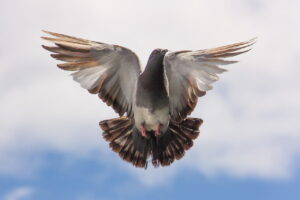
There are countless bird-related trivia facts I like to spout over the dinner table, during walks to class, or in the delirium of three a.m. roommate conversations, but my favorite might be the fact that there is no scientific difference between pigeons and doves.
Did you know that the sooty-looking birds pecking at moldy hot dog buns between parked cars on the streets of New York are also known as city doves? Or that the one sent by Noah from his arc that returned with an olive branch (or sent by Utnapishtim in The Epic of Gilgamesh; yes, I paid attention in Civ) could also be called a white pigeon?
The reason I clarify that there is no scientific difference is because there is, of course, a difference in our minds. Sure, in the olden days one’s mind might conjure the image of a carrier pigeon, but in the twenty-first century we have much more efficient messaging technology, so the word “pigeon” in our brains remains generally confined to the realm of smoggy, overcrowded urban areas, perhaps with half-empty Dunkin’ bags littering the sidewalks. Doves remind us of quite the opposite scene—rainbows and receding flood waters, the hand of Aphrodite, an open window at a wedding or the Vatican, maybe a gentle, kind person. But in reality, doves are white pigeons, and pigeons are gray doves.
I write about this fact not to educate the public on avian taxonomy, or to explore the etymologies of these two words, or to make some grand allegorical statement about setting aside our differences and accepting every individual as an equal member of the human race—although these are all great things. Rather, I write simply to ponder the fact that culture is a strange thing, because most of us do not think about doves or pigeons on a daily basis and yet we immediately have all these preconceived ideas. However, if I were to ask one of my classmates to mentally divide ninety-six by twelve, an action consciously practiced, it would take longer for their mind to arrive at the answer than it would take for New York City hot dog bun-eating street pest to come when beckoned with the word pigeon.
I could argue that everything would be different if we only went back in time a few thousand years and asked Utnapishtim to send off a gray dove, but even if the legend is true, that’s not what I’m here for. To be honest, I’m not quite sure what my reason is. I guess I just felt like writing about pigeons and giving them a bit of the positive press they deserve. They were pretty useful before email, after all. But now, I just think they’re pretty, period. And you can feel free to disagree; maybe it’s the orange eyes or strangely fluorescent scaly feet that rub you the wrong way. Take a look at their feathers under direct sunlight, though, and watch how iridescent they are, shifting between hues of jade and amethyst.
Another fun fact—many birds have plumage that reflects ultraviolet light, and because their eyes are so sensitive to it, they use it to recognize one another. So, maybe, pigeons are even more beautiful to other pigeons than they can be to us. Each individual bird’s UV markings are unique, like fingerprints, so even if we see a flock of pigeons as a monotone mass, they are far from identical.
You might be wondering what inspired me to go off on this peculiar tirade. The reason is because there’s been a pigeon wandering around Slavin lawn for the past couple of days. Ever since I moved in, I’ve seen him strutting around each time I pass, bobbing his little head and probably looking for abandoned Dunkin’ bags. I wonder if he has a flock or has claimed the whole campus to himself. Either way, he doesn’t seem too upset to see us all back here. He stayed right beside me on the path for a few moments the other day and I slowed down my stride just so he could keep pace. People probably looked at me like I was nuts, but it was an unexpected peaceful moment in an otherwise rushed and stressful day. So if you happen to see the Slavin pigeon—Slavin dove, if you prefer—maybe you’ll stop for a few seconds to think about taxonomy or language or culture. Maybe tell him I said hi.
Tough Decisions
by Elizabeth McGinn on May 6, 2021
Creative Non-Fiction
Trigger Warning: This poem includes
references to sexual assault and rape.
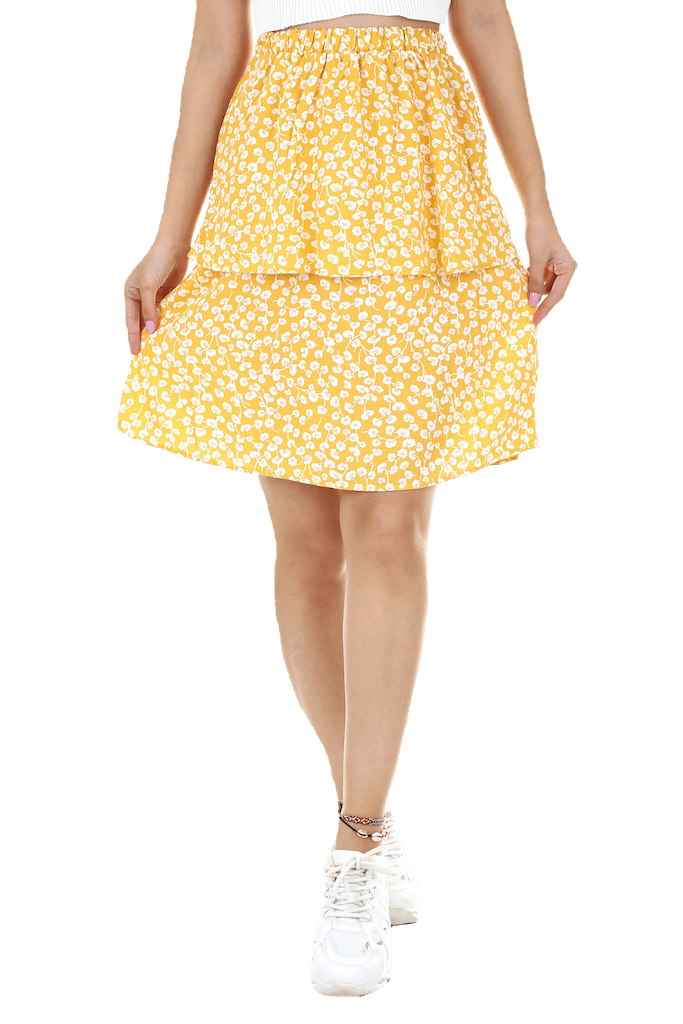
by Anna Pomeroy ’23
Since the moment our voices make that tremendous cry, we’ve been thrown onto a path. The doctor’s palms whisk us away into the comforting arms of a mother, a mother given to us merely by fate. Born into a family of strangers, realistically. It’s crazy how we are told our whole lives that we choose what we make of it, yet we truly are only brought into a life with strings attached that we did not form. With two siblings after me, I was born into the role of the oldest sibling— not by choice. Becoming the second voice of a parent under the roof wasn’t easy. At Christmas, my mom, through valid attempts to make present shopping easier, presumed that my sister and I morphed into the same character, gifting the pink version of a shirt for me, and the blue for her. Yet, we eventually grew into our own skin. The home, the town, and the state we were born into are random, with little control granted to family income opportunities for varying education. Assigned a gender at birth, this is never a choice. I am grateful for being born a female in a world of strong feminist morals, but I frankly had no control over the assumptions made about me due to my gender. I have sometimes been told by society and social media what is “ok” to wear and what is “not”––that I cannot walk alone at night without baring keys between my white knuckles and faking a phone call to my dad. No control regarding doing the same job as male colleagues but given less pay due to my gender. How downright scary it is for women that someone could even think an incident of sexual assault could have been influenced by the clothes I chose to wear that morning. They say we make life our own and can choose what happens, yet, because we are born into a society with an imbalanced structure of power, I will hear “your outfit is too distracting,” “yeah, well you did well for a girl,” “but what were you wearing when you were raped?”
Sniff Anything
by Elizabeth McGinn on April 22, 2021
Creative Non-Fiction
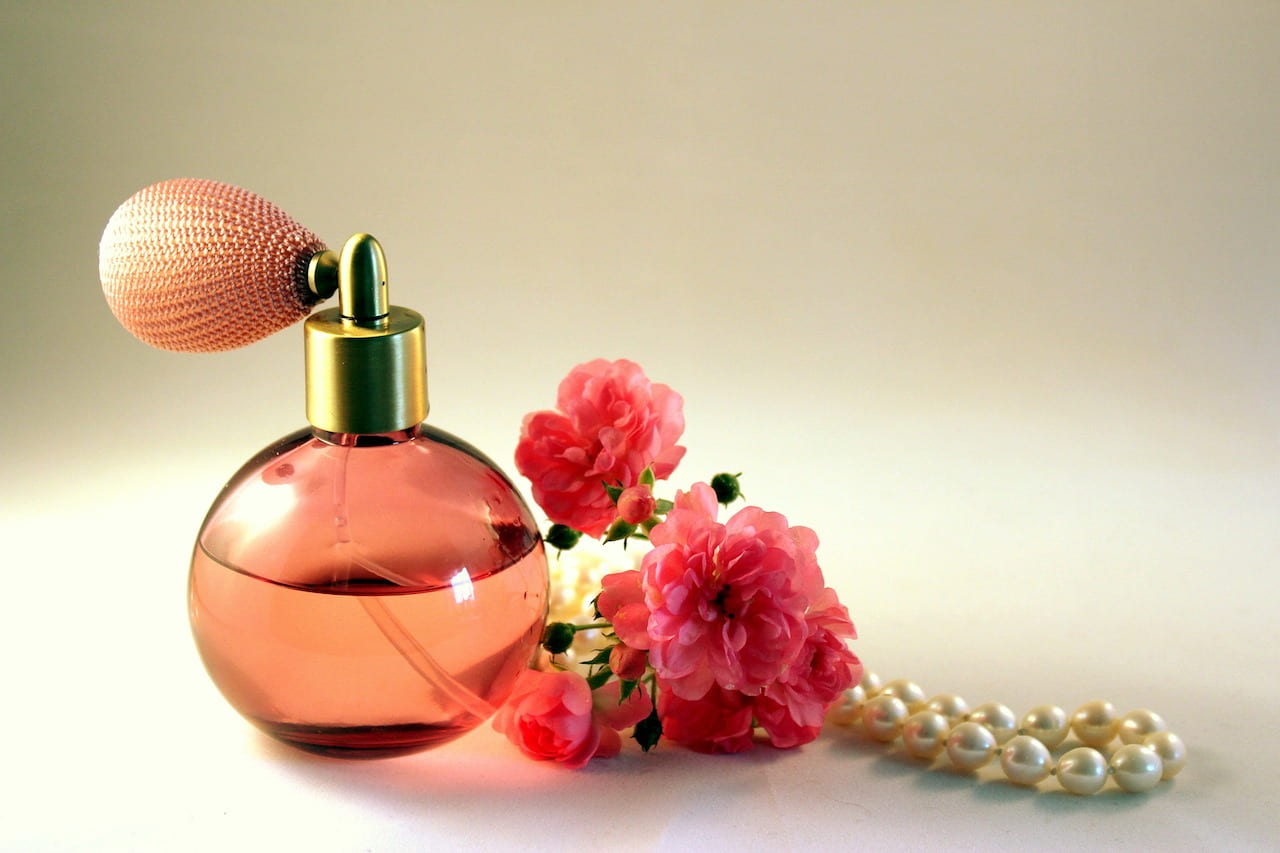
by Fiona ’23
The next time someone asks me what I do for fun, I’m going to say that I keep an olfactory scrapbook. My hope is to put an end to that line of questioning right then and there, and slink away in a cloud of enigma, but in the event that my dogged interrogator pursues the line of questioning, I’ll explain that in the same way some people collect stamps, I collect smells. I think that’ll be sufficient to end the conversation. Nobody likes a sniffer.
We’re all sniffers, though. We all keep olfactory scrapbooks. There’s actually a name for the way that smells evoke memories—it’s called the Proust phenomenon, after French author Marcel Proust and his madeleines. In layman’s terms, the phenomenon could loosely be explained thus: if the way to a man’s heart is through his stomach, the way to a man’s memory is through his nose. So I’m not crazy; my nose has just caught the whiffs of literary giants. Think about it: you smell lavender, and you think Grandma and her lavender perfume. I smell lavender, and I think a doll named Samantha, and then I’m ricocheted back to 2008, when I had bangs and was firmly convinced that I was going to meet an untimely end at the hands of gorillas. (If some psychoanalyst is reading this and has any idea why my worst fear is the common or garden gorilla, I’d love to have a chat. I am a twenty-year-old American woman, and if I have ever met a gorilla in person, I have completely repressed that memory.)
I like thinking about this. I like to think that someday I’ll run into someone wearing a particular sort of cologne, and then all of a sudden, I’ll have a picture in my head of my mom in a black dress putting on that same cologne, with my dad suited and tied and twiddling his thumbs by the door. I like to think that if someone were able to bottle up the smell of the hallway in my dorm and gave it to me in twenty years, I’d immediately recognize that strange cocktail of bleach, marijuana, cigarette smoke, floral air fresheners that smell like no flowers God ever made, and the indescribable pong of Old Building. It’s not bad, exactly, but it wouldn’t sell as a Yankee Candle. Well, maybe it would. Yankee Candles sells a “Mango Peach Salsa” candle, so who knows? Maybe “Aquinas Aroma” wouldn’t do so badly after all.
Lest I look too much on the upside, let’s turn to the obvious downside to the Proust phenomenon. Life doesn’t all smell like roses and vanilla extract. It also smells like 36 inexplicably pungent ounces of weak gas station coffee, spilled on the back seat of a 12-seater van already drenched in its signature scent. It smells like four kids’ sweat-soaked soccer jerseys. It smells like Michigan farmland. It smells like paint in a room without windows or doors. The “Aquinas Aroma” isn’t so fun to be steeped in day in and day out, and I don’t like to think that I may never be able to smell plain old cigarette smoke without twinging recollections of an old friend’s nicotine habit. But if I can think of my sister at the age of five every time that I unwrap a cherry cough drop, I think that’s worth the trade-in. So I’m going to go get a lungful of something.
Drowning
by Elizabeth McGinn on March 18, 2021
Creative Non-Fiction

by Anna Pomeroy ’23
It’s quite an odd sensation—the quick plunge into the depths of the tundra water. And while I haven’t truly experienced it, I can imagine the freezing temperatures and numb chills being mistaken by the bubbles glistening across every goosebump as they stream up the surface of skin. I would never romanticize the act of drowning, but I do see it like a rollercoaster ride. The extreme panic that overtakes the body as their vision is immediately blinded by the water collapsing on top of their head is replaced in a matter of moments. Drowning, while seemingly a sufferable experience, is over in a matter of a minute. While our body endures the first few seconds of fighting for breath and attempting to reach back up for air, we become so comfortable with the body that it eventually breaks. The battle ends as the lungs allow water to invade the host. I can only imagine the grand feeling of peace that implodes in the disappointment of losing the fight. As the body sinks and darkness creeps across from the periphery, the sensation of peace overcomes it. Facing up, the body falls into the dark, undiscovered depths of the water, leaving all troubles of life left on the shore. It’s crazy how a visual based on escape strips away the glory of existence in just a matter of moments.
St. Patrick’s Day Straitjacket
by Elizabeth McGinn on March 18, 2021
Creative Non-Fiction
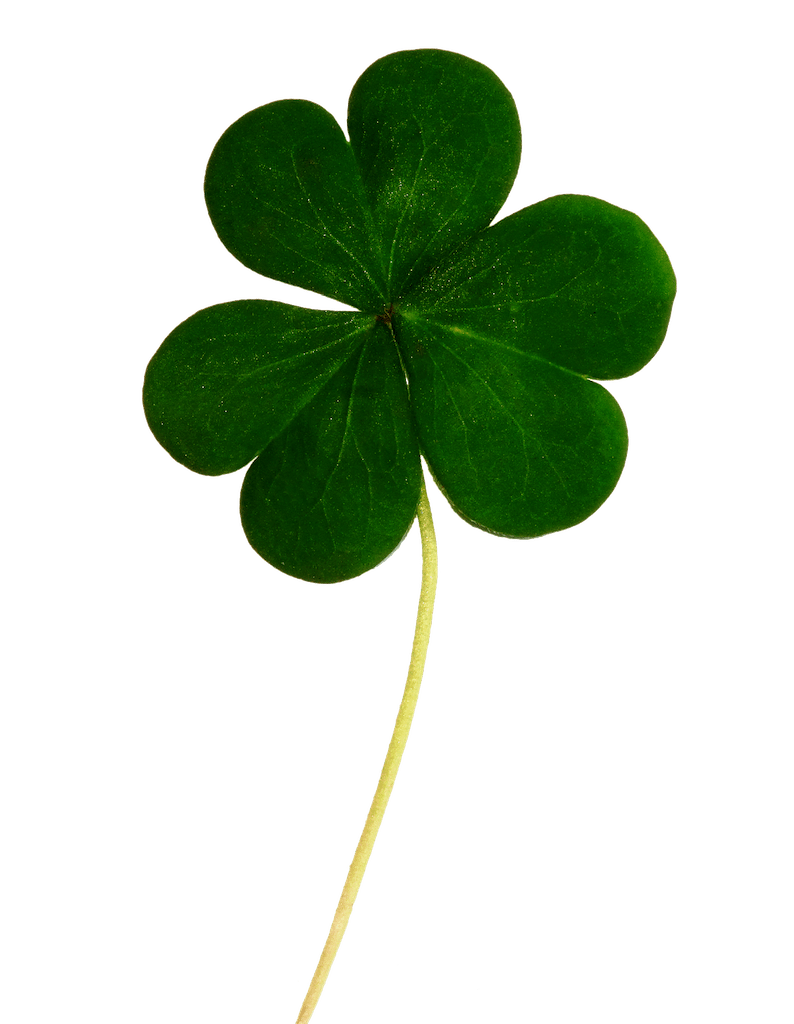
by Fiona Clarke ’23
It’s almost that time of year when I can’t tell whether I’m embarrassed or sunburned. Every year, I think, “I won’t get sunburned, it’s too cold, or cloudy, or I’ll only be outside a few minutes,” and every year, I find out the hard way that no, I can’t stand outside for ten minutes without getting what Gordon Ramsey might call “a beautiful sear” all over. Well, I guess it’ll be appropriate to mark St. Patrick’s Day with a peeling forehead. (I imagine my ancestors will smile down upon me—eternal rest granted unto them, O Lord, and let perpetual light shine upon them and not scorch them).
I’ll probably be spending St. Patrick’s Day in some kind of straitjacket, because if I were to hear that (expletive) song “Kiss Me, I’m Irish,” well, I don’t know what I’d do, but it wouldn’t be pretty. I don’t mean to be harsh—hold on, what am I saying? Of course I do: Unless you really want a reminder that your blood is in fact red, not green, then keep that song the hell away from me. My blood is boiling just thinking about it.
In case it wasn’t clear, I have mixed feelings about St. Patrick’s Day. I like it in and of itself, in fact I love it, but my spine curls around itself like an old phone cord at an overabundance of green glitter, and there are few things I hate more than the cutesification of alcoholism. And that goes for you, “Kiss Me, I’m Irish”—I am here picturing myself in the righteous rage of George Bailey rising up to denounce Mr. Potter and all his flunkies, but they have all painted themselves Kelly green and are wearing a sparkly green top hat that’s just begging to be knocked off.
Why the long face? you say. Why such rage? you say.
First of all, three of the lines from the chorus of this benighted song are pilfered from other Irish songs, good songs. I can and will name these songs: “I am the wild rover” is from “The Wild Rover,” best done by The Dubliners. “My eyes, they are smiling” is a reference to “When Irish Eyes are Smiling;” Bing Crosby’s version is the classic. “I’m seldom sober” is from “Carrickfergus,” best done, without question, by The Chieftains & Van Morrison. Now I’d consider the use of any line from “Carrickfergus” a grave offense, because it is a great song, and as far as I’m concerned “Kiss Me, I’m Irish” is so far removed from the realm of ‘good songs’ as to be practically dancing the macarena on sacred ground. But the use of that particular line, “I’m seldom sober,” just beats all. The line works in “Carrickfergus” because “Carrickfergus” is a sad song, the “sad reflections” of a dying man, and being in a continual state of intoxication is a sad thing. But in “Kiss Me, I’m Irish,” it tries to turn something sad and bleak—alcoholism—into something fun and zany, an attribute of someone you’d want to party with. It just doesn’t work, because it reeks of untruth.
The other four lines of the chorus are half-assed collages of terms that will together conjure hackneyed images of Ireland, such as “whiskey” and “dancing” and “luck.” It’s likely that the writers of “Kiss Me, I’m Irish” had no intention to write a great Irish anthem, that they intended the song to be to Irish music and culture what pancake syrup is to maple syrup—that is, a tasteless, sticky mockery of something good. I suppose the counterargument is that that’s exactly what makes it good, that it does what it was intended to do, but I’ll be damned if I start believing that art’s value lies solely in the intentions of the artist. (No, I don’t know what the intentions were of the particular artists behind “Kiss Me, I’m Irish,” and no, I don’t really care either.)
By the time this issue is published, the day in question will have passed, and I hope you haven’t gotten any emails from Public Safety alerting you of brawls between drunk leprechauns and unidentified female students with brown hair, approximately 5’4 (fine, 5’3 and a half). I hope I made it through the day without getting into any brawls with leprechauns. But if I did, I sure hope I won. I probably did.
Writing Obsessions
by Elizabeth McGinn on March 4, 2021
Creative Non-Fiction

by Anna Pomeroy ’23
I’d dream to write of hopeless romance. You know, something that gives readers hope for love, lust, and wonder. A piece that can appropriately inhabit a colorful and eye-catching visual of a book cover, one that glistens in the glory of being put on display in the front of the bookstore. I’d wish for my writing to be a safe place, where many can use it as a comfort read, a fairytale ending. Yet, my mind can only wander to the dark, and eventually the unknown entity of death. I’m not sure why I am always fixated on death and the reality of the world we live in. In some sort, I could argue I fear death, understandably. But writing about it is not going to give me any answers. If anything, I’ll just fall deeper and deeper into the endless spiral of the black hole called overthinking. Yet, writing isn’t always motivated by a craving for answers, but merely curiosity. While I could follow suit of my poetry and view my writing in the negative aspect of swaying away from any “nice” reads, my writing may also manipulate my narrative in the bold aspect, courageous. Perhaps when I put pen to paper, I choose to unlock a deeper crevice of my brain, one that sometimes people keep shelved away in the basement, and use reading as an escape from life’s troubles. I’m a bold writer. I want to remind people of those thoughts we hope to never discover, to exist in a state of blissful ignorance. And while these truly undesirable thoughts visualized in my poetry may actually bring readers a sense of comfort, I still am the “enemy.” When I go to write, I never lead with the goal of pleasing my readers, but of helping myself visualize my thoughts. I guess it’s kind of selfish. Although my poetry may take a shot into the dark, in hopes of catching the adoration of others, it will always be the book cover collecting dust on the bookshelves in the back of the bookstore, and I am oddly okay with that.
